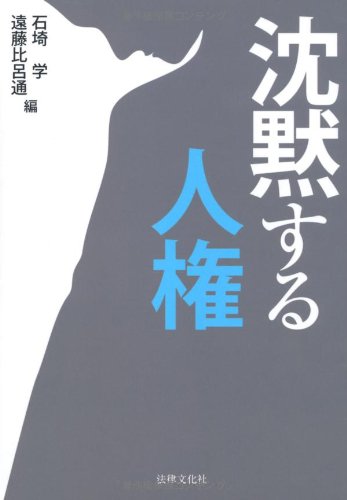9 0 0 0 沈黙する人権
- 著者
- 石埼学 遠藤比呂通編
- 出版者
- 法律文化社
- 巻号頁・発行日
- 2012
3 0 0 0 OA 法主体としての「ホームレス」?
- 著者
- 遠藤 比呂通
- 出版者
- The Japanese Association of Sociology of Law
- 雑誌
- 法社会学 (ISSN:04376161)
- 巻号頁・発行日
- vol.2006, no.64, pp.140-152,279, 2006-03-30 (Released:2012-06-20)
- 参考文献数
- 33
It is 10 years since I first visited Kamagasaki, which is the biggest slum in Japan. "Are there any human rights exist in Japan?" "Kamayan", a Kamagasaki daily based worker, responded to my self-introduction that I had been teaching human rights law in Japan."Kamayan" was quite right in his allegation. Kamagasaki workers and homeless people were "displaced persons" in the sense used by Hanna Arendt in her influential book "The Origin of the Totalitarianism": their human rights were not violated, but they lost the right to have human rights itself.Since then, I have been street lawyer in Kamagasaki. Especially, I have been in charge of a forced eviction case against homeless people by Osaka City. We have been alleging in this case "a right to adequate housing" stipulated in the Social and Economic Covenant of Human Rights, because only these kinds of rights would confer "Kamayan" security of legal tenure beyond the scheme of Nation State, which was thought by Arendt as a hazard to human rights.From my experience as a street lawyer, the right to adequate housing should be properly defined only when homeless people themselves join the negotiation process. The Committee of the Covenant has been using 'genuine consultation' to describe this process. "Kamayan" should be treated as a legal agency in the field of law.
2 0 0 0 OA 人間、国民、市民-市民社会、ナショナリズム、グローバリズムと新しい政治理論
- 著者
- 岡本 仁宏 荒木 勝 菊池 理夫 木部 尚志 古賀 敬太 杉田 敦 千葉 眞 寺島 俊穂 富沢 克 的射場 敬一 丸山 正次 山崎 望 山田 竜作 大澤 真幸 岡部 一明 遠藤 比呂通 ありむら 潜 大竹 弘二 立岩 真也 石井 良規 天野 晴華
- 出版者
- 関西学院大学
- 雑誌
- 基盤研究(B)
- 巻号頁・発行日
- 2008
冷戦後の世界において、多くの人びとは我々の政治理論・社会理論が動揺する世界秩序を把握する言葉や構想を持ちえていないことを感じているという現状認識のもとに、近代政治理論における政治主体の基本用語の可能性と限界を追求した。「人間、国民、市民」(ヒューマニティ、ナショナリティ、シティズンシップ)という基幹的主体用語を中心に、「市民社会、ナショナリズム、グローバリズム」という三つの政治思想との関連において、その妥当性を検証し、既存概念の限界を指摘すると同時に、それらに代わる政治主体の可能性を検討した。
